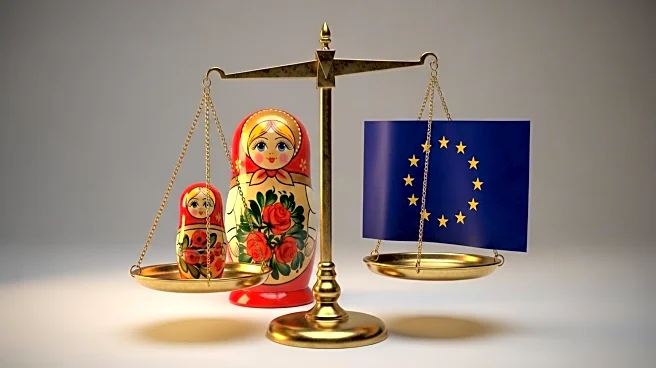What's Happening?
Moldova is holding a parliamentary election amid allegations of Russian interference. The election is seen as a pivotal moment for the country, which is choosing between further integration with the European Union or aligning more closely with Russia. The pro-Western Party of Action and Solidarity (PAS) faces challenges from several Russia-friendly parties. President Maia Sandu has accused Russia of interfering in the election, emphasizing the importance of democracy and the country's future within the EU. The election has been marked by concerns over vote-buying, cyberattacks, and disinformation campaigns allegedly orchestrated by Russia. Moldova's large diaspora is expected to play a crucial role in the election outcome.
Why It's Important?
The election in Moldova is significant as it could determine the country's geopolitical orientation and its future relationship with the EU and Russia. The outcome could influence regional stability and the balance of power in Eastern Europe. Allegations of Russian interference highlight the ongoing challenges faced by countries in the region in maintaining democratic processes and resisting external influence. The election also underscores the importance of Moldova's diaspora in shaping the country's political landscape. The results could have broader implications for EU-Russia relations and the EU's strategy in Eastern Europe.
What's Next?
Following the election, the formation of a new government will be crucial in determining Moldova's future direction. The pro-Western PAS will need to secure a majority to continue its EU integration efforts. The international community, particularly the EU, will be closely monitoring the situation and may offer support to ensure a fair electoral process. The outcome could lead to increased tensions with Russia if Moldova continues to pursue closer ties with the EU. The new government will need to address domestic challenges such as economic instability and social divisions exacerbated by the election.









